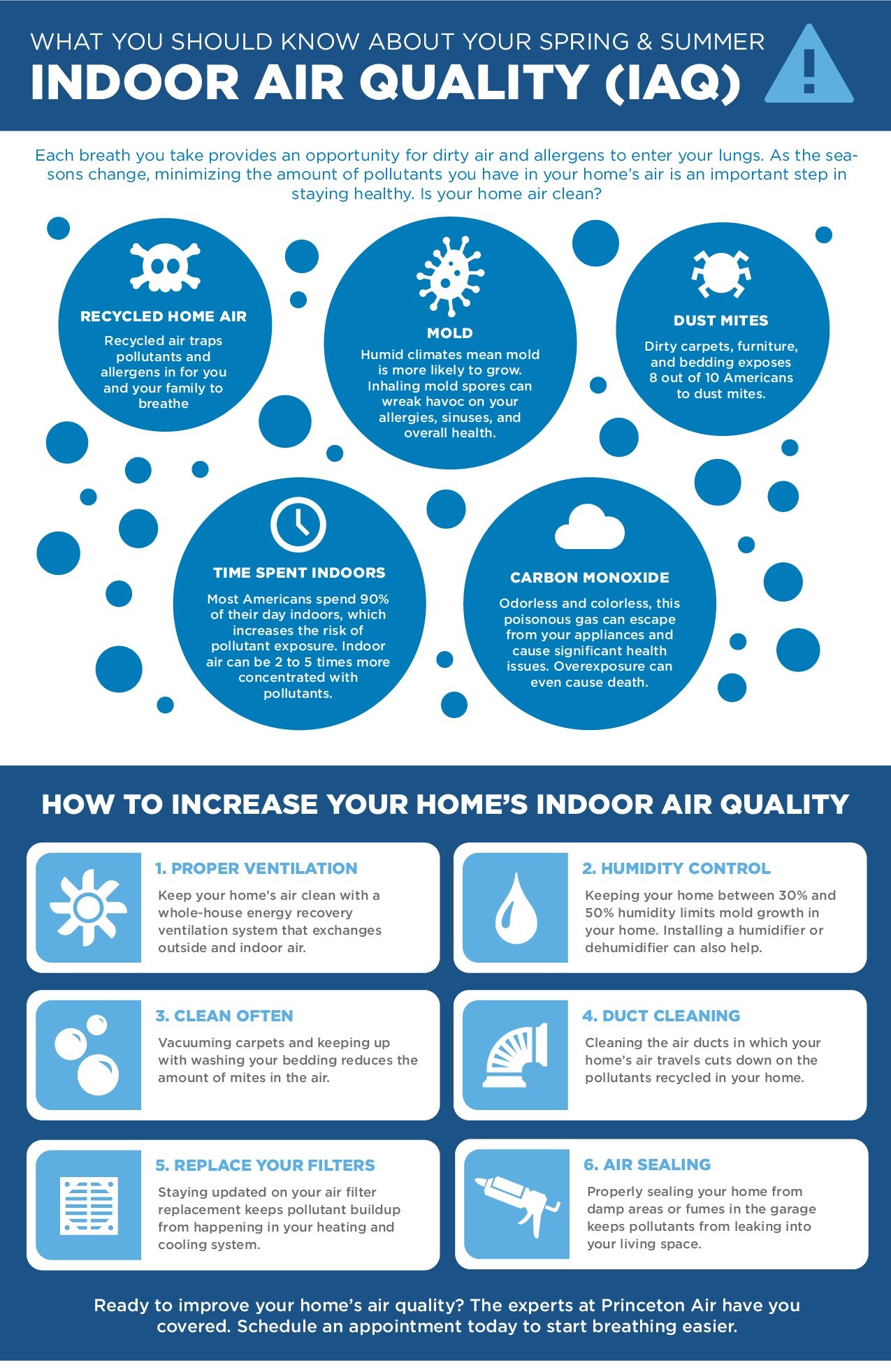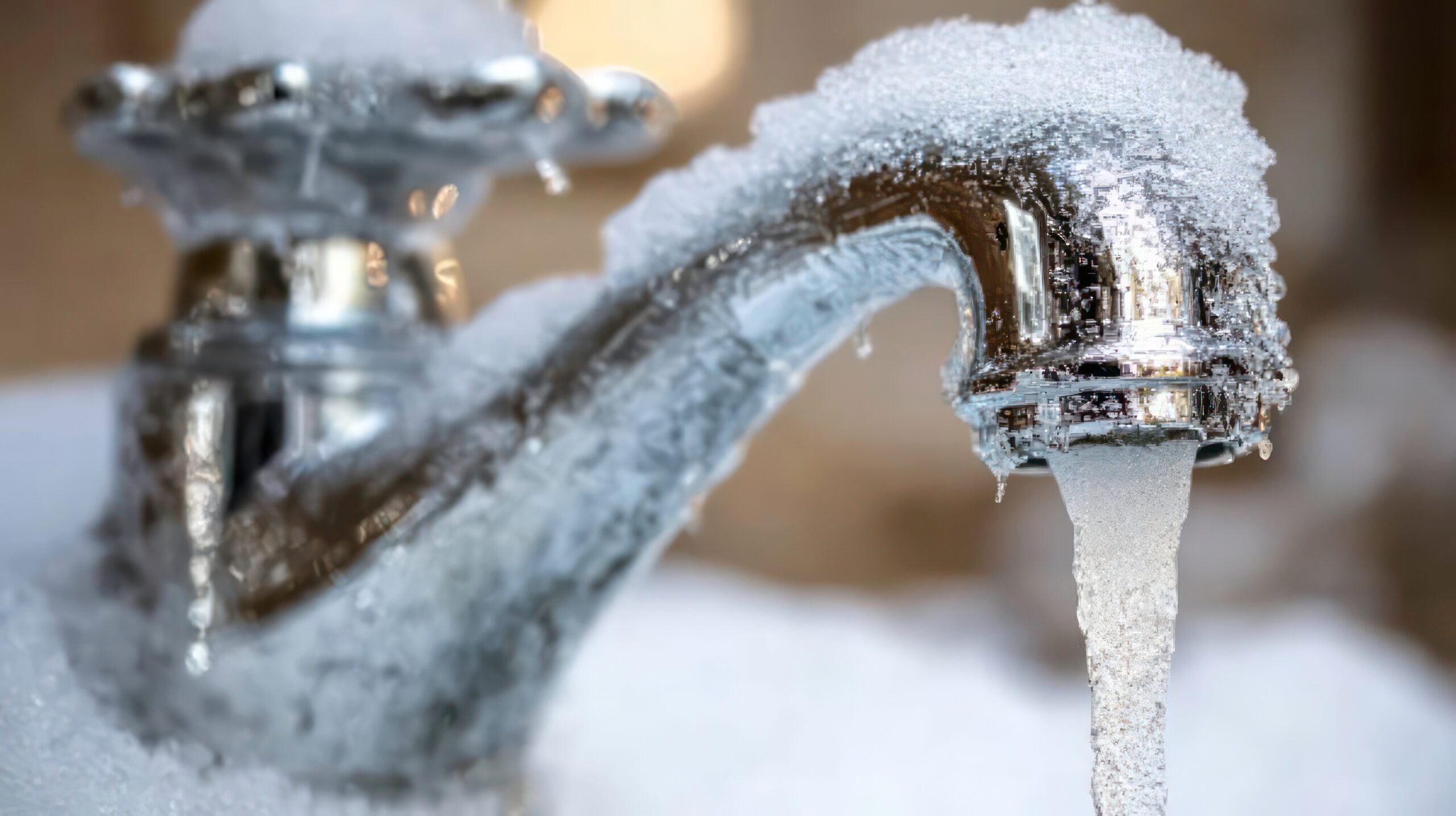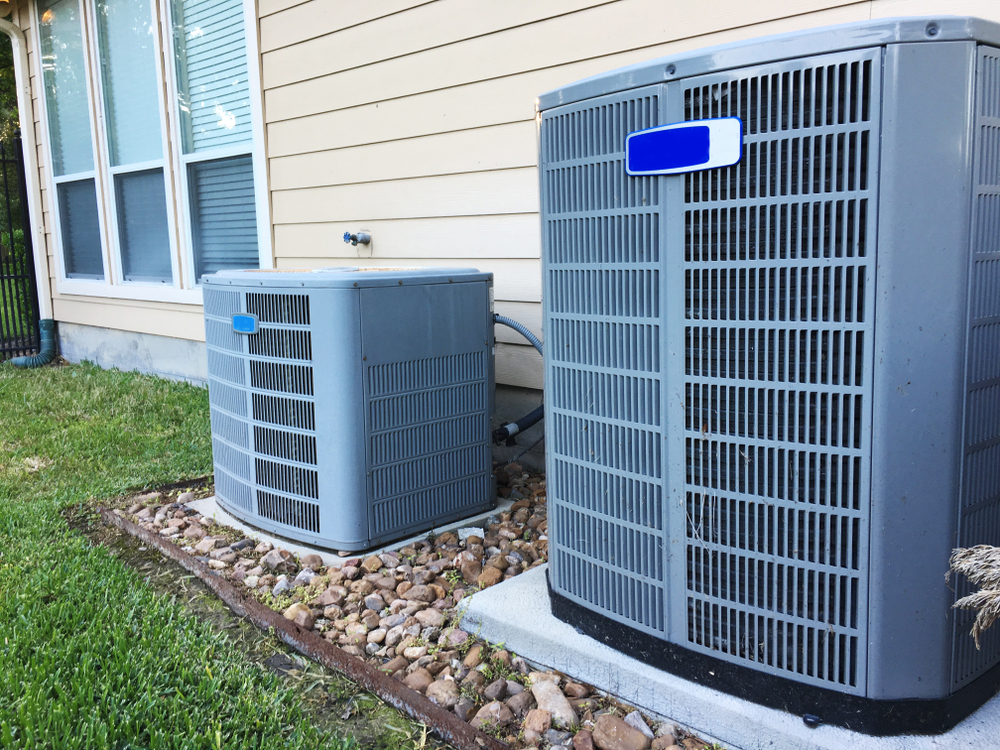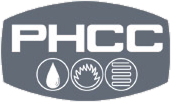Each breath you take provides an opportunity for dirty air and allergens to enter your lungs. As the seasons change, minimizing the amount of pollutants you have in your home’s air is an important step in staying healthy. Is your home air clean?

Each breath you take provides an opportunity for dirty air and allergens to enter your lungs. As the seasons change, minimizing the amount of pollutants you have in your home’s air is an important step in staying healthy. Is your home air clean?
What To Look Out For:
Recycled Home Air
Though keeping your home tightly sealed can contribute to overall energy efficiency, it also means recycled air that traps pollutants and allergens in for you and your family to breathe.
Mold
Hot and humid climates mean mold is more likely to grow. Inhaling mold spores can wreak havoc on your allergies, sinuses, and overall health.
Dust Mites
Dirty carpets, furniture, and bedding exposes 8 out of 10 Americans to dust mites on a regular basis.
Carbon Monoxide
Odorless and colorless, this poisonous gas can escape from your appliances and cause significant health issues. Overexposure can even cause death.
Time Spent Indoors
The average American spends 90% of their day indoors, which increases the risk of pollutant exposure. Indoor air can be 2 to 5 times more concentrated with pollutants than outside air.
How To Increase Your Home’s Indoor Air Quality:
Air Treatment
Properly sealing your home from damp areas or fumes in the garage keeps pollutants from leaking into your living space.
Humidity Control
Keeping your home between 30% and 50% humidity limits mold from forming and growing in your home. Installing a humidifier or dehumidifier can keep your home’s humidity under control.
Duct Cleaning
Cleaning the air ducts in which your home’s air travels cuts down on the pollutants recycled in your home.
Proper Ventilation
You want your home to be properly sealed, but you also want to introduce new air to your home to keep it fresh. You can battle this with a whole-house energy recovery ventilation system that exchanges outside and indoor air with minimal effect on your indoor heating and cooling systems.
Clean Often
Vacuuming carpets and keeping up with washing your bedding reduces the amount of mites in the air.
Replace Your Filters
Staying updated on your air filter replacement keeps pollutant buildup from happening in your heating and cooling system. Depending on the system, it may be required to replace your filters every 4 to 6 weeks.










